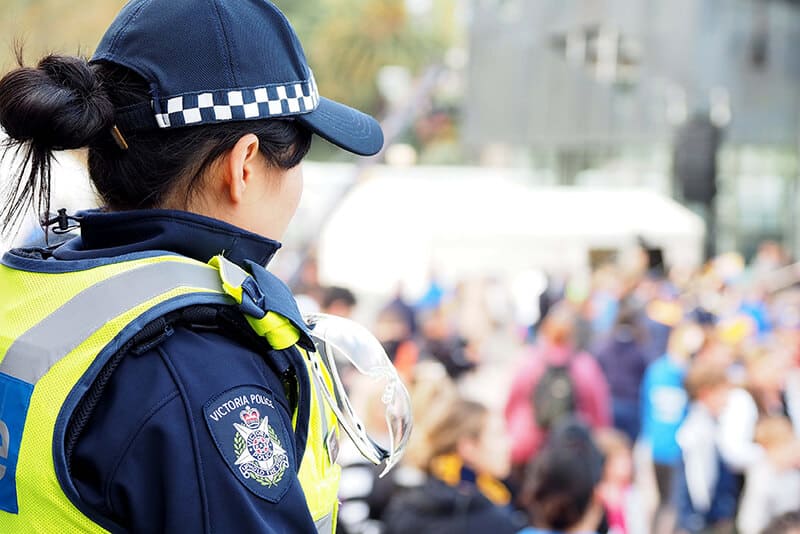While working in the emergency services can be incredibly rewarding, it can also be very stressful – so how does one go about maintaining a work life balance?
Australia’s community of emergency service workers provide all levels of care and protection to us, and often when we need it most. While it’s often assumed that working as a firefighter, a nurse, a paramedic or being a member of the police force requires unusual working hours and conditions on any given day, it’s easy to forget that the ongoing events of the COVID-19 pandemic affect those on the front lines on a day to day basis too.
With approximately 80,000 Australians working full time in the emergency services, ensuring that this sector of the national workforce has access to a healthy work life balance is paramount. As a wider community not only do we need to ensure that they are able to perform at their best whilst on the job, but are able to continue on with their lives outside of work too.
While initiatives such as the Victorian Government’s $6 million dollar investment into mental health care specifically for emergency service workers certainly goes a long way, what can members of this workforce do on a day to day basis to ensure that they’re maintaining a healthy work life balance for the long term?
Five Tips For Achieving Better Work Life Balance
Although every field and sector has members that may struggle with achieving work life balance, those working in the emergency services are faced with extra contributing factors such as shift work, high pressure environments, trauma and exposure to potentially violent and dangerous situations on a day to day basis.
Considering the nature of the work that they do, a recent study conducted by the Black Dog Institute in 2020 found that one in ten emergency service workers in Australia show symptoms consistent with post traumatic stress disorder (or PTSD). With similarly high rates of depression and anxiety, it’s never been more important to maintain a life and a support network outside of the job – but where do you start?
Time Is A Currency – Balancing work and life roles requires good time management skills, so don’t forget that time is the most valuable of all currencies and one that you can’t get back. Although it can be all too easy to say yes to overtime shifts either due to a sense of obligation or for the extra income, be aware of your own limits and set some boundaries.
Work With Purpose – If you’re overtired, burnt out or even depressed, it can be easy to forget as to why you got into the emergency services in the first place. To ensure you keep your passion and purpose alive, don’t be afraid to be selective with your workplace to ensure it lines up with your values and allows you to find meaning in the day to day stuff.
Have A Support System – Working in the emergency services sectors can be highly rewarding and give you a real sense of making a difference. However, the day to day work can also be violent, traumatic and stressful, so it’s important to manage your mental health proactively instead of reactively. If you’re not handling something, say something.
Check Your Priorities – While you no doubt have a medley of responsibilities that command your attention, be sure that they’re in the right order of priority. If you have a young family at home that you would like to see more of, then make it happen. It’s also important to have passions outside of the job, whether that’s via relationships, hobbies or even volunteering.
Learn To Say No – During life transitions such as the completion of training, marriage, childbirth, and the death of family members, taking time to reassess and reset both work and life goals can be helpful in creating balance. Values change, and what you have always said ‘yes’ to may no longer serve you as well as it once did.
In Australia there are a medley of systems in place designed to specifically support emergency service workers. Members of the police force, firefighters, paramedics and nurses can access a wide range of specialty discounts on a range of items such as insurance, hotels and even parking.
Australia has a long history of providing banking institutions, health care providers and even superannuation options dedicated to the needs of the police force and other emergency services. However, there has never been a go-to provider for navigating the many realms of real estate – until now.
Get The Right Advice The First Time
With a background in banking, finance, business development and project management, there’s no better advocate to have on your team than Nikki Berzin. As a fully qualified mortgage broker and director of Cherry Lending & Finance, Nikki is passionate about all things finance, and empowering her clients with the tools to hit their property goals is what she does best.
Nikki is also one of the very few mortgage brokers in Australia that specialises in providing finance solutions for emergency service workers. From sourcing suitable loan products, navigating the unique sets of criterias and ultimately securing the all important pre-approval, Nikki has helped countless members of the police, fire and ambulance community take the stress out of home loans.
If you’re looking to get into your first home, purchase an investment property or even want to look at your options for refinancing, the first step is starting the conversation. Get in touch with Nikki today, or call her directly on 0427 374 155 to bring your mortgage dreams to life.
Disclaimer: Your full financial needs and requirements need to be assessed prior to any offer or acceptance of a loan product. Subject to lenders terms and conditions, fees and charges and eligibility apply.





